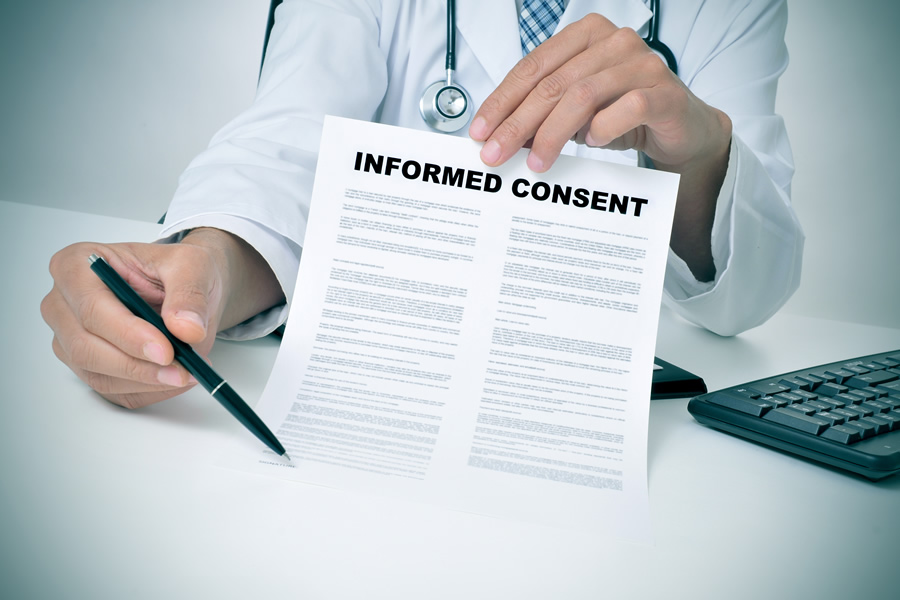Frequently Asked Questions
Clinical trials (also called medical research and research studies) are used to determine whether new drugs are safe and effective. Carefully conducted clinical trials are the safest way to find new treatments.
Clinical trials are conducted in phases. The trials at each phase have a different purpose and help scientists answer different questions:
In Phase I trials, researchers test a new drug or treatment in a small group of people for the first time to evaluate its safety, determine a safe dosage range, and identify side effects.
In Phase II trials, the study drug or treatment is given to a larger group of people to see if it is effective and to further evaluate its safety.
In Phase III trials, the study drug or treatment is given to large groups of people to confirm its effectiveness, monitor side effects, compare it to commonly used treatments, and collect information that will allow the drug or treatment to be used safely.
In Phase IV trials, post marketing studies help us learn additional information including the drug’s risks, benefits, and optimal use.
No, medical insurance is not necessary to participate in clinical studies.
To better understand how new drugs may work on different races and genders, it is important that diverse groups are represented in studies. Potential benefits are:
- Access to assessments, tests, and medical supervision from specialists who intimately understand your condition
- The opportunity to receive study drug that is not widely available
- The knowledge that you are helping to bring new drugs to market
- The chance to be a part of medical breakthroughs
Yes. Potential risks include:
- You may receive a placebo, which contains no active ingredient
- You may not benefit from the treatment
- There may be unpleasant or unknown side effects
To help you decide if you want to be in a study, the Food and Drug Administration (FDA) requires that you be given certain information about the study. This is known as informed consent. This includes information such as:
- That the study involves an investigational drug
- What the purpose of the study is
- How long the study will last
- What the study procedures are
- Possible risks
- Possible benefits
- Other treatments that you might want to consider other than participating
- The person to contact with questions you may have
- That you can leave the study at any time
- What medical treatments are available to you if you are hurt, where those treatments are, and who pays for those treatments
- That the FDA may look at study records, but those records are kept confidential
- Whether you will be compensated and, if so, how much

Some studies compensate for time and/or travel, others do not.
The FDA has strict guidelines and regulations that help ensure the safety of clinical trials. Participants are closely followed by the doctors conducting the study and they are available to you in case you have questions. All clinical research is also approved by review boards which provide oversight specifically for ensuring patient safety. The review boards are also a resource for you. They are there to answer any questions you may have about being a research participant.
Some trials are completed within a few weeks and some last a year or more. It varies depending on the study, but we will always tell you upfront how long the study is expected to last.
If you are not eligible for any of our current studies, we can add you to our database. As we begin new trials, we search our database for qualified participants then contact them to see if they are interested.
In many clinical trials, one group will be given the study drug. Another group, called the control group, is given either a standard treatment or a placebo.
Some studies compare a new drug against a placebo (a pill, liquid, or powder that has no active ingredient) to determine the new drug’s effectiveness. In these studies, the participants in the control group will receive a placebo instead of an active drug or treatment. Although we often do not know who is on the study drug and who is on placebo, we will always tell you if a study has a placebo so you can make an informed decision about participating.
Sometimes once your participation ends in one study, there is an option to enroll in another study that only offers the study drug and no placebo. If this isn’t an option, participants typically return to the treatment they were on prior to starting the study.
Once the entire study is complete, meaning enrollment has ended, all of the information gathered has to be reviewed. If the study drug is safe and works then there may be more studies or it may go to the FDA for approval, which can take a while. Sometimes study drugs aren’t approved for various reasons.



